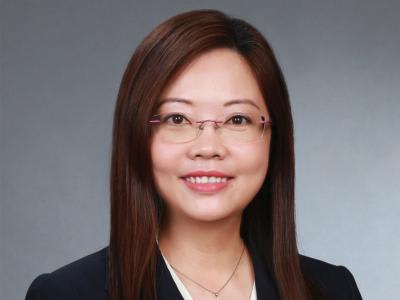The Inland Revenue Authority of Singapore (“IRAS”) issued an e-Tax Guide on 28 August 2020 to explain the tax framework for a Variable Capital Company (“VCC”).
Income Tax Treatment
How different is a VCC from a normal company
The VCC is a new corporate structure for investment funds that can be used across a wide range of fund strategies. The set up could be a single fund structure or an umbrella fund that consists of two or more sub-funds (i.e. an umbrella VCC). Each and every sub-fund and the umbrella VCC would maintain its own assets and liabilities. The creditors’ claims of a sub-fund can only be settled using assets of that sub-fund, and not assets of the umbrella VCC or other sub-funds within the same VCC. An umbrella VCC therefore is required to keep separate accounting and other records and present separate accounts for each sub-fund in its financial statements.
For income tax purposes, a VCC is treated as a company incorporated under the Companies Act. Accordingly and subject to modifications where applicable, a reference to a company in the Income Tax Act (“ITA”) and the subsidiary legislation made under it includes a VCC. Whether a VCC is a non-umbrella VCC or an umbrella VCC with two or more sub-funds, it will be recognised as a single entity for income tax purposes.
The VCC framework also allows fund managers to redomicile existing overseas investment funds with structures comparable to that of a VCC, by transferring their registrations to Singapore as VCCs.
Tax residency
The usual control and management rules governing the determination of tax residency of a company would similarly apply to a VCC. Hence a VCC could apply for a Certificate of Residence (“COR”) to support its tax treaty benefit claims. As for an umbrella VCC with sub-funds, since it is recognised as a single entity, the COR application for its sub-fund(s) should be made at the umbrella VCC level. The tax residence of the sub-funds would follow that of its umbrella VCC. IRAS will issue COR to an umbrella VCC, if requested, with the name of the sub-fund(s) included in the COR.
Income and expenses of VCCs
As VCCs are to be used as investment funds, only the following tax incentives under the ITA may be considered:
- Exemption of income under Sections 13R and 13X arising from funds managed by a fund manager in Singapore.
- Exemption of income under Section 13H for venture capital funds.
Certain deductions provided for under the ITA are not available to a VCC such as management expenses of investment companies, enhanced deduction for approved trade fairs and overseas investment development, renovation and refurbishment expenditure, intellectual property protection and licensing expenditure and others.
A VCC is also not allowed to transfer or receive loss items under the Group Relief System.
For an umbrella VCC, the chargeable income of each of its sub-funds is to be computed at each sub-fund level. This includes for example the determination of whether investment disposal gains should be taxed, modification of provisions for VCCs redomiciled in Singapore, capital allowances and foreign tax credit relief calculations, but before deducting the partial tax exemption or start-up tax exemption (“SUTE”) amount.
The chargeable income or exempt income of an umbrella VCC is the sum of the chargeable income or exempt income of all its sub-funds. The partial tax exemption scheme or SUTE scheme amount and corporate tax rebate are applied at the umbrella VCC level. It is up to the umbrella VCC to allocate the tax exemption and tax rebate amounts between its sub-funds in a manner that it considers fair to all its shareholders.
With regard to the eligible conditions for the application of the SUTE scheme, the determination of the first three years of assessment is tied to the date of incorporation of the VCC and not the date of registration of its sub-fund(s). As for the determination of a qualifying VCC, the reference to no more than twenty shareholders holding the VCC’s “total share capital” is referring to the entire share capital of the VCC across all sub-funds.
Modification of provisions for VCCs redomiciled in Singapore
The existing legislative provisions governing the inward redomiciliation of a company have been modified to apply to an overseas investment fund redomiciled to Singapore as a VCC. In the case of a redomiciled umbrella VCC, the modified tax framework will apply at the sub-fund level, i.e. in respect of a trade or business carried on by the redomiciled umbrella VCC in relation to a sub-fund outside Singapore prior to its registration in Singapore.
The SUTE scheme will not apply to redomiciled VCCs.
The two most relevant issues likely to be encountered:
- Expenses incurred before registration
No deduction will be allowed in respect of expenses incurred by a redomiciled umbrella VCC before its registration date if those expenses are incurred for the carrying on of a trade or business outside of Singapore by its sub-fund and for which a deduction or relief has been given in another jurisdiction under its tax law.
If a redomiciled umbrella VCC did not carry on any trade or business in relation to its sub-fund (whether outside Singapore or in Singapore) before its registration date, a deduction may be allowed for expenses incurred before the registration date if such expenses were incurred for the purposes of its sub-fund’s trade or business in Singapore. The deduction will be allowed for the year of assessment relating to the basis period in which the sub-fund’s trade or business commences in Singapore.
- Impairment losses on financial assets
Impairment losses incurred before a redomiciled umbrella VCC’s registration date in respect of financial assets on revenue account acquired for its sub-fund’s trade or business outside Singapore will not be taxable when the impairment losses are reversed after that date.
Where such impairment losses are incurred after the date of registration, the losses would be allowed as a deduction if the assets were credit-impaired within the meaning of FRS 109 or SFRS(I) 9. The subsequent reversal of any such losses would be taxable to the extent a deduction was allowed.
Foreign tax credit relief
Singapore tax resident VCCs may, subject to the existing provisions in the ITA as modified, claim a tax credit on the amount of tax paid in a foreign jurisdiction against Singapore tax payable on the same source of income. For an umbrella VCC, the amount of tax credit available will be computed at the sub-fund level.
For the purpose of the minimum 25% shareholding requirement for unilateral tax credits claimed in respect of foreign dividends, it will be determined individually with reference to the percentage of shares of the foreign company paying the dividend, held by the umbrella VCC for each sub-fund in respect of which the tax credit is to be made.
Unabsorbed capital allowances, losses and donations
As the assets and liabilities of each sub-fund are separately tracked and maintained, likewise the unabsorbed capital allowances, losses and donations are quarantined within the respective sub-fund and are not available for deduction against the income of another sub-fund or any other income of the umbrella VCC. The unabsorbed capital allowances and losses (unutilised donations can only carry forward) may be carried forward or carried back to offset against future profits of that particular sub-fund.
In the context of an umbrella VCC, in applying the shareholding test and in the determination of whether there is substantial (more than 50%) change in its shareholders and their shareholding as at the relevant comparison dates, the shareholders in this instance refer to holders of shares of the umbrella VCC in relation to the sub-fund to which the unabsorbed capital allowances, losses or donations belong and not the entire population of shareholders of the umbrella VCC.
Dividends
Dividend distributions made by a Singapore resident VCC are tax exempt in the hands of its shareholders.
Annual tax return filing
Just like any company incorporated under the Companies Act, a VCC is also required to file its estimated chargeable income with IRAS within three months from the end of its financial year. The same filing deadline of 30 November for the annual tax return filing applies to VCCs.
A VCC will not be eligible to use Form C-S, a simplified version of Form C, in its annual tax return filing. A Form C must be used. Regardless of the number of sub-funds an umbrella VCC has, the umbrella VCC, being a single entity, needs only to submit one set of income tax forms in respect of the entire structure. Form C submission must be accompanied by the audited financial statements as well as the income tax computations and supporting schedules. For an umbrella VCC, the income tax computations and supporting schedules must reflect clearly how the chargeable income of each sub-fund is arrived at.
Should any sub-fund of an umbrella VCC be in a tax loss position, the unabsorbed capital allowances, losses and unutilised donations must not be used to offset against the chargeable income from other sub-funds. Such loss items of the loss-making sub-funds must be clearly tracked, including indicating the year of assessment involved, in the submitted income tax computations. The adjusted profit or chargeable income declared in Form C is the sum of the chargeable income of the sub-funds that are in a taxable position.
Registration or winding up of sub-fundsIRAS need not be informed on the registration of new sub-funds. When an umbrella VCC decides to wind up a sub-fund, tax clearance must be obtained from IRAS prior to the completion of the winding up process. The final income tax computations accompanied by the relevant financial statements up to the date of cessation of business of the sub-fund concerned must be submitted, payment of all outstanding taxes and penalties (if any) made and all outstanding tax matters resolved with IRAS. |  |
Stamp Duty Treatment
Stamp duty is a tax on dutiable instruments such as share transfer instruments, contracts or agreements for sale of properties, etc. The dutiable instrument executed by a non-umbrella VCC or an umbrella VCC will attract the same duties as a dutiable instrument executed by a company.
For any instruments executed by an umbrella VCC for its sub-funds which are liable to stamp duty, the duty is levied at the sub-fund level as sub-funds of an umbrella VCC are treated as separate persons for stamp duty purposes.
Stamp duty on instruments between (i) an umbrella VCC and its sub-funds or (ii) sub-funds of the same umbrella VCC
When an instrument is executed between (i) an umbrella VCC and its sub-funds or (ii) sub-funds of the same umbrella VCC, the instrument will attract the same duties as an instrument executed between companies.
One key issue to note is that if an umbrella VCC is undertaking a transaction for its sub-fund, it is required to state the relevant details of the sub-fund in the instrument for the acquisition of the chargeable assets. If it does not, the acquisition will be taken to be made by the umbrella VCC for its own purpose. As a result, any subsequent instrument executed to pass the interests in the chargeable assets from the umbrella VCC to its sub-fund will attract a further set of duties.
For a transaction executed by an umbrella VCC with or between its sub-funds and it is a dutiable event but not evidenced by an instrument, the umbrella VCC is required to give a notice to the Commissioner of Stamp Duties within 14 days of the transaction with its sub-fund or between its sub-funds, and that notice shall be chargeable with stamp duty accordingly. Failure to notify and pay the appropriate duty timely will render the umbrella VCC to a fine, on conviction, of up to four times the amount of duty payable.



